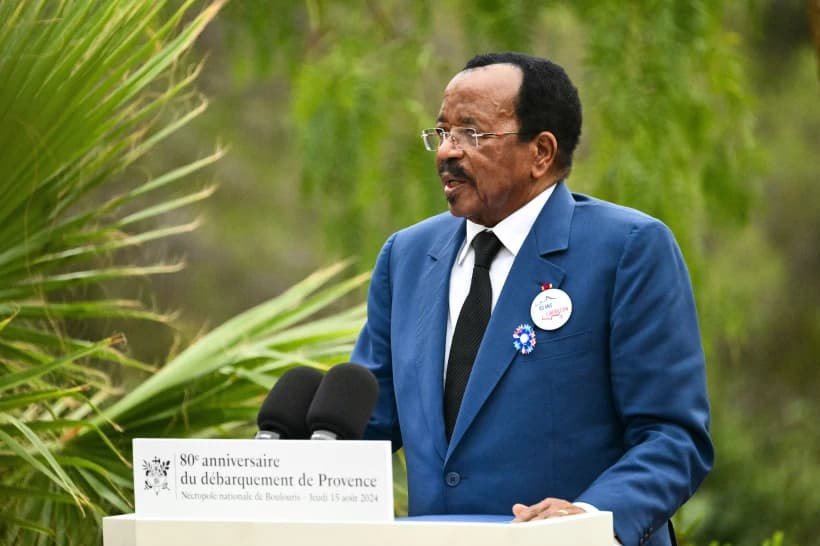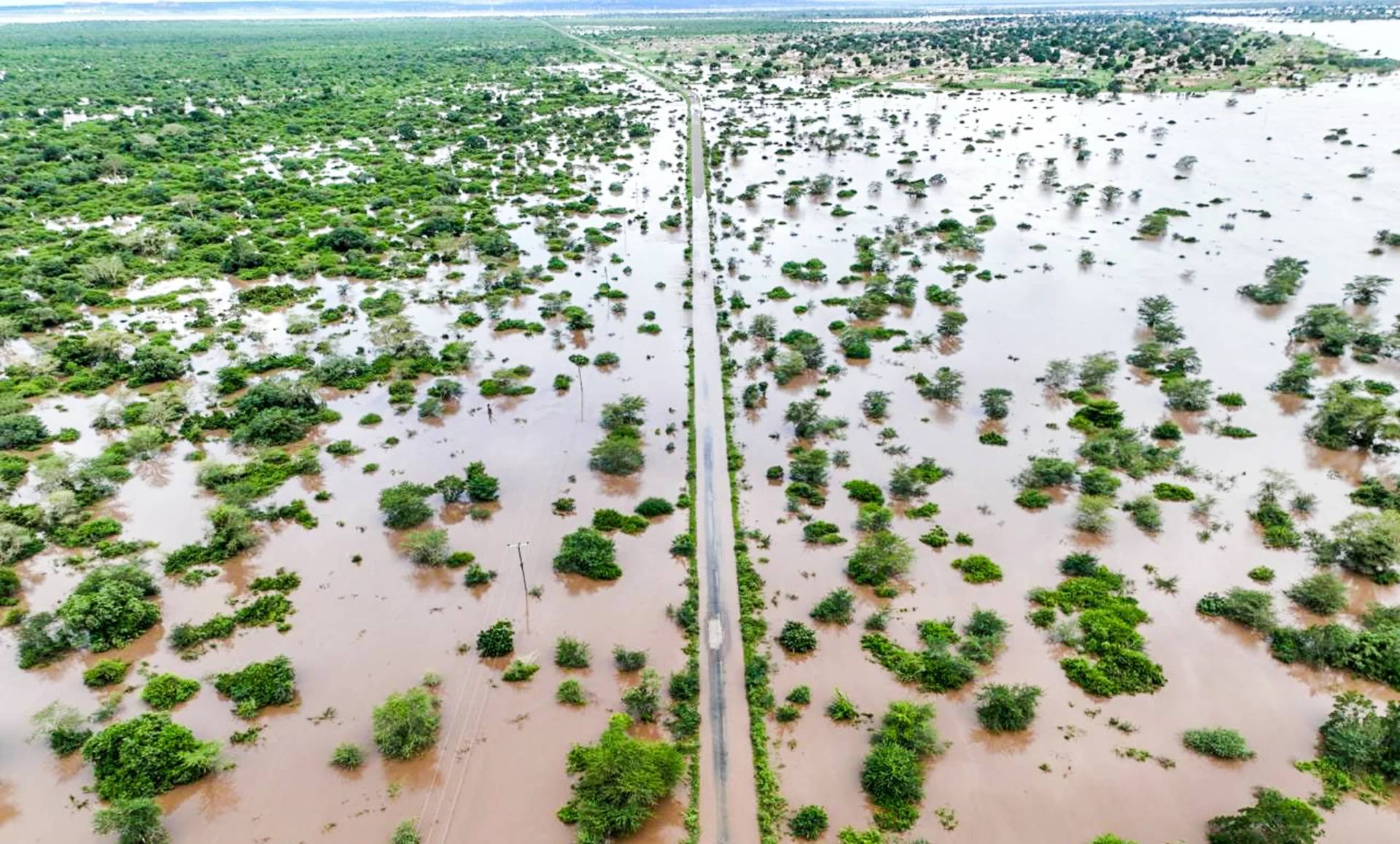YAOUNDÉ, Cameroon – As Cameroon heads to a presidential election in October, Archbishop Samuel Kleda of Douala has sharply criticized President Paul Biya’s government, painting a dark picture of a country so rich in natural resources, but whos resources are so badly managed.
In a 16-page Pastoral Letter released August 8, the leading Catholic noted that “our society is shaken by multiple ills that afflict all social strata.”
“The unease that is currently eating away at our country and causing widespread discontent among citizens in this pre-election period stems from anti-evangelical acts that have been instituted in the management of our country,” the archbishop said, and proceeded to list the anti-evangelical acts: “Poor governance and corruption, distorted democracy, widespread poverty and unemployment, illegal immigration, the dilapidated road network, difficult access to water and electricity, the murky management of oil, injustices in mining, and the Anglophone and security crises in the Far North.”
He said such evils pervert relations between citizens and rulers, leading to abuse of power and injustice.
“However, at present and at all times, our country thirsts for social justice, which is expressed through respect for human rights and the development of everything that allows it to flourish and fulfill its vocation,” Kleda said.
He denounced the “atrocious suffering that particularly affects the poorest and weakest, held hostage by the chains of corruption and injustice,” explaining that the country’s vast natural resources are being plundered to fund the opulent lifestyle of members of the government, while the vast majority of citizens are starving.
He said this has created a socially unadjusted economy in which the rich grow richer as the poor grow poorer, noting that it has been caused by “the refusal to promote integral human development that benefits everyone.”
For him, the challenge facing Cameroon’s leaders lies in “respecting and implementing the concept of the common good.”
He blasted those in government for failing to make Cameroonians their priority, saying that “the focus is on the individual, the group, the clan, the ethnic group, the lobby.”
This state of affairs sacrifices the majority of the population, pushing them toward impoverishment and misery that is destroying Cameroon and jeopardizing “the future of millions of people, especially young people.”
A corrupt democracy
The Douala archbishop also took a swipe at the country’s democratic experiment, saying that it has failed to respect the cannons of working democracies: Tolerance, dialogue, transparency, justice and truth. Instead, Cameroon’s democracy is “tainted by institutional violence, intimidation, and a lack of transparency, truth, and justice.”
For him, a democracy where “political actors are despised, brutalized, and imprisoned is doomed to fail.”
He criticized Cameroon’s political actors for failing to engage in meaningful which prevent “the consolidation of peaceful coexistence.”
Brain drain
The prelate expressed anger that the failure to offer young people hope for a better country is forcing thousands of young people to leave the country, sometimes at the risk of losing their lives, in search of “greener pasture” abroad where they feel sure to get decent jobs, and better living and educational conditions.
“This brain drain is emptying our country of intelligent, skilled young people, scientists, engineers, and health professionals, to the benefit of countries offering better living and working conditions,” Kleda said.
The archbishop also spoke about the opaque management of resources, noting that it is paradoxical that Cameroon that is so blessed with hydraulic potential still has problems of access to drinking water and electricity. He said the “numerous energy development projects, such as hydroelectric dams,” were designed “to enrich corrupt officials through kickbacks.”
He noted further that the management of Cameroon’s oil revenue remains “a complete mystery, because the hydrocarbon sector is controlled by a group of individuals who award themselves exploration and drilling contracts, oil contracts, and marketing rights.”
Kleda finds it unacceptable that hydrocarbons are “not serving the national economy, but are the preserve of a small circle of political power that awards itself contracts and positions and arrogates all rights and privileges to itself, while the majority languishes in poverty.” The same is true of the mining sector.
The Douala archbishop equally addressed the security problems plaguing the Central African nation, decrying the incapacity of the government to find solutions to the crisis rocking Cameroon’s English-speaking regions. The conflict that started in 2016 has so far left at least 6,500 people dead, and a further 800,000 people forced out of their homes.
He blasted separatist fighters in the two regions for killing, committing acts of assault and kidnapping people, but Kleda didn’t have kind words for the military either, explaining that there is “the brutality of the army, which razes entire villages on the mere suspicion of support (for the enemy).”
In the far north of Cameroon, the terrorist group Boko Haram is spreading terror and desolation. Faced with these extremely painful and worrying situations, Kleda is asking the government to spare no effort to “restore peace in all crisis-hit regions.”
With a presidential election scheduled for October 12, the archbishop seems to suggest that it was time Cameroonians vote Biya out of office.
“On the eve of the presidential election in October 2025 in our country, I invite you all to join me, your brother, so that together we may raise our voices to Almighty God to implore peace for our country, a spirit of love and service in families, and for each one of us,” the archbishop said.
“Choosing a president of the Republic is a civic duty that falls to each and every one of us, and which will shape the future of our country. That is why our civic action must lay the foundations for a new and prosperous society, based on peace and justice, and focused on the well-being of us all,” he said.
“I invite all people of good will to change their mindset and attitude, to undergo a profound inner transformation, to embark on a new path and to renew their lives in order to become ‘peacemakers’ (Mt 5:9), according to the will of our Lord,” he added.
Biya will face eleven other candidates at the poll as he seeks an eighth consecutive term of office. The 92-year-old leader has been in power since November 1982.
Kleda’s outing has sparked bitter reactions among the president’s henchmen. Professor Owona Nguini, a political scientist and close ally of the president accused Kleda of using the pulpit for partisan politics.
“The Pastoral letter is clearly partisan in nature. The bishop in my opinion stepped away from his priestly mission to engage in partisan politics,” he said.














